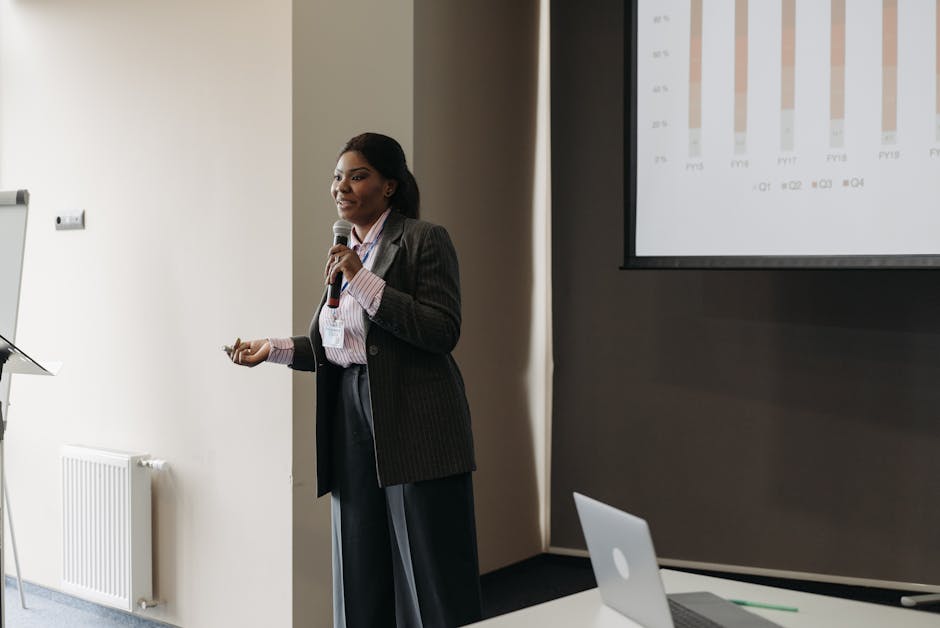Tips for Hosting Successful Religious Workshops
Religious workshops play a crucial role in fostering community, spiritual growth, and education among believers. Whether aimed at deepening one’s faith, promoting interfaith dialogue, or learning about different religious traditions, hosting successful religious workshops requires careful planning, organization, and execution. In this comprehensive guide, we will explore a variety of tips and strategies to help you create impactful and meaningful religious workshops that resonate with participants.
The Importance of Religious Workshops

By Mikhail Nilov via Pexels
Religious workshops serve as platforms for individuals to come together, share knowledge, engage in discussion, and deepen their understanding of spiritual matters. They provide a space for learning, reflection, and personal growth, offering participants the opportunity to connect with like-minded individuals and build a sense of community. Additionally, religious workshops can help bridge cultural divides, promote mutual respect, and foster interfaith dialogue, contributing to a more harmonious and inclusive society.
Now, let’s delve into some key tips for hosting successful religious workshops.
1. Define Your Objectives Clearly
Before planning a religious workshop, it is essential to clearly define the objectives and goals you hope to achieve. Are you aiming to educate participants about a particular religious tradition? Do you want to create a space for dialogue and exchange between different faiths? Are you looking to provide spiritual guidance and support to individuals in need? By outlining your objectives from the outset, you can tailor the workshop content, format, and activities to meet these specific goals.
For example, if your objective is to promote understanding and tolerance among participants from diverse religious backgrounds, you may choose to incorporate interactive discussions, group activities, and guest speakers representing different faith traditions. On the other hand, if your goal is to deepen participants’ knowledge of a specific religious text or practice, you might focus on in-depth study sessions, workshops, and guided meditations.
2. Select Relevant Topics and Themes

By Pavel Danilyuk via Pexels
Choosing the right topics and themes for your religious workshop is crucial to ensuring its success. Consider the interests, needs, and preferences of your target audience when selecting content and designing the workshop agenda. Whether you are exploring the teachings of a particular religious figure, discussing ethical dilemmas in a religious context, or delving into the history of a sacred site, make sure the topics are engaging, relevant, and thought-provoking.
For instance, if you are hosting a workshop for young adults interested in mindfulness and meditation, you might focus on themes such as stress reduction, emotional well-being, and self-discovery. Incorporating practical exercises, guided meditations, and group discussions can help participants connect with the material on a personal level and apply it to their daily lives.
3. Engage Participants Through Interactive Activities

By Mikhail Nilov via Pexels
One of the key elements of a successful religious workshop is active participant engagement. Incorporating interactive activities, group discussions, and hands-on experiences can enhance the learning process, foster collaboration, and create a sense of community among attendees. Consider incorporating a variety of learning modalities, such as visual, auditory, kinesthetic, and experiential, to cater to different learning styles and preferences.
For example, you could organize a role-playing exercise where participants act out scenarios involving ethical dilemmas in a religious context, encouraging them to think critically and empathize with different perspectives. Alternatively, you might facilitate a guided meditation session to help participants cultivate mindfulness, relaxation, and inner peace. By incorporating diverse and engaging activities, you can ensure that participants remain actively involved and invested in the workshop.
4. Provide Expert Guidance and Support
Having knowledgeable and experienced facilitators is essential for the success of a religious workshop. Whether you invite guest speakers, religious scholars, or community leaders to lead sessions or facilitate discussions, ensure that they are well-versed in the topic, engaging, and able to connect with participants effectively. Expert guidance can help provide valuable insights, answer questions, and offer a deeper understanding of religious teachings and practices.
Additionally, offering ongoing support and resources to participants before, during, and after the workshop can enhance their learning experience and encourage further exploration. Providing reading materials, online resources, and opportunities for follow-up discussions or study groups can help participants deepen their knowledge, reflect on their experiences, and continue their spiritual journey beyond the workshop.
5. Foster a Respectful and Inclusive Environment
Creating a respectful and inclusive environment is essential for fostering meaningful dialogue, mutual understanding, and positive interactions among participants in a religious workshop. Emphasize the importance of respect, empathy, and open-mindedness in all communications and interactions, encouraging participants to listen actively, express their opinions thoughtfully, and engage with differing perspectives constructively.
Implementing ground rules, such as allowing one person to speak at a time, practicing active listening, and refraining from judgment or criticism, can help maintain a harmonious and respectful atmosphere throughout the workshop. Additionally, being mindful of cultural sensitivities, religious beliefs, and individual preferences can help create a safe and welcoming space where participants feel valued, accepted, and encouraged to share their thoughts and experiences.
6. Evaluate and Reflect on the Workshop
After hosting a religious workshop, take the time to evaluate its effectiveness, gather feedback from participants, and reflect on what went well and what could be improved. Consider using surveys, focus groups, or individual interviews to collect feedback on the workshop content, format, facilitation, and overall experience. Analyzing this feedback can help you identify strengths, weaknesses, and areas for growth, allowing you to refine your approach and enhance future workshops.
Reflecting on your own performance as a facilitator or organizer, seeking input from colleagues or mentors, and revisiting your objectives and goals can provide valuable insights into the impact of the workshop and ways to enhance its effectiveness. By continuously evaluating and improving your workshops, you can create a more engaging, relevant, and impactful learning experience for participants and contribute to their spiritual growth and development.
Additional Sections
Expert Opinions
We reached out to several experts in religious studies and workshop facilitation to gather their insights on hosting successful religious workshops. Dr. Sarah Johnson, a professor of religious studies at a leading university, emphasized the importance of creating a welcoming and inclusive environment for participants from diverse backgrounds. She suggested incorporating interactive activities, group discussions, and experiential learning opportunities to engage participants effectively and foster meaningful connections.
Furthermore, Dr. Michael Lee, a seasoned workshop facilitator with extensive experience in interfaith dialogue, highlighted the significance of expert guidance and support in ensuring the success of religious workshops. He stressed the importance of inviting knowledgeable speakers, religious leaders, and community members to lead sessions and provide valuable insights into religious teachings, practices, and traditions.
Common Misconceptions
One common misconception about hosting religious workshops is that they are only for devout believers or individuals from the same faith tradition. In reality, religious workshops can benefit individuals from diverse backgrounds, beliefs, and worldviews by promoting cross-cultural understanding, dialogue, and mutual respect. By creating inclusive and welcoming spaces for participants to explore and learn about different religious traditions, workshops can foster empathy, compassion, and intercultural awareness.
Conclusion
In conclusion, hosting successful religious workshops requires careful planning, clear objectives, engaging content, expert guidance, a respectful environment, and ongoing evaluation and reflection. By following the tips and strategies outlined in this guide, you can create transformative and meaningful experiences for participants, fostering spiritual growth, community building, and interfaith dialogue. Remember to tailor your workshops to the needs and interests of your audience, engage participants actively, provide expert support, and cultivate a culture of respect and inclusivity. By doing so, you can make a positive impact on individuals’ lives and contribute to a more harmonious and understanding society.
To wrap things up, hosting religious workshops is not just about sharing knowledge or promoting a particular faithit’s about creating spaces for dialogue, reflection, and personal growth, where individuals can connect with one another, learn from diverse perspectives, and deepen their understanding of spiritual matters. Whether you are organizing a workshop for a specific religious community, an interfaith group, or a diverse audience, remember that the ultimate goal is to create an environment where participants feel valued, respected, and inspired to explore their beliefs and values. By following the tips outlined in this guide and staying true to the principles of inclusivity, empathy, and open-mindedness, you can host successful religious workshops that leave a lasting impact on participants’ lives.




